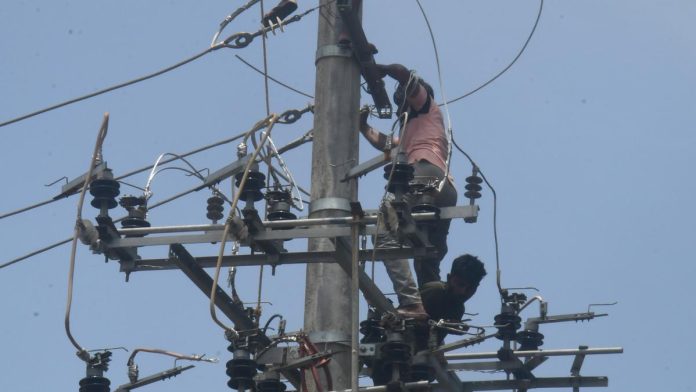NEW DELHI, June 19: Multiple-tripping incidents were reported in the northern region on Monday after power demand shot up to 89.4 gigawatt (GW), leading to a supply gap of 16.5 GW, as per a Northern Regional Load Despatch Centre (NRLDC) report.
Haryana, Delhi, Punjab, Uttarakhand, Himachal Pradesh, Uttar Pradesh, Rajasthan and J&K were the affected states, the report said.
NRLDC is a part of the National Load Despatch Centre (NLDC), which under the Union Ministry of Power, is responsible for scheduling and dispatch of electricity over the inter-regional links.
“At 13:53, northern region demand experienced a reduction in load of the order of 16.5 GW. The incident occurred immediately after the tripping of both bipoles of +/-800 kV HVDC Champa (WR) – Kurukshetra (NR) which was carrying 4,500 MW from the Western Region to the Northern Region. After tripping of the HVDC link, low voltages were observed across the northern region and the above load reduction occurred,” NRLDC said.
A partial outage of the 765/400kV Aligarh (PGCIL) station occurred due to the reported tripping of five 765 kV lines. Prior to the event, the net import of NR was 15,500 MW and a demand of 89,410 MW was being catered.
Loads were gradually restored considering low voltages and high loading on 765 KV Agra-Gwalior lines. System load was restored to near normal level by 14.30 hours. All the transmission elements which tripped were restored by 16:00 hours.
In the Northern Region hydro generating units tripped at Bhakra, Karcham, Sainj, Ranjit Sagar Dam (Total-1,237 MW). Thermal generating units tripped at Lalitpur, Rajwest, Unchahar, Panipat (Total-1,250 MW).
Reacting to the incident, the All India Power Engineers Federation (AIPEF) Chairman Shailendra Dubey urged the government to take necessary steps immediately.
“AIPEF requests the Centre to declare the present heat wave as a natural calamity like floods and cyclones etc and take measures in short and mid-term to tackle the situation,” Dubey said.
In a letter to the government, AIPEF has suggested that office timings should be changed to 7 am to 2 pm, all commercial establishments should be closed by 7 pm and there should a peak load restrictions on the industry. (PTI)


